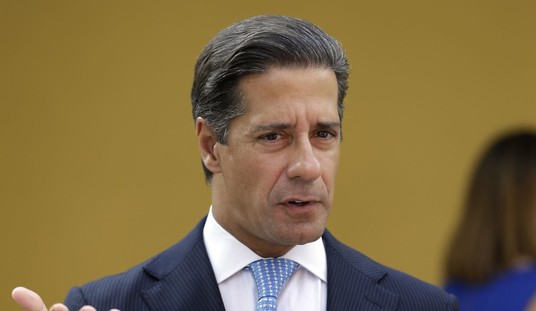As you may have already heard, Pete Buttigieg is running for the Democratic nomination to be president in 2020. (And if you haven’t, you are to be forgiven since he’s still polling at less than one percent.) Speaking strictly as a writer, I’m rooting against him because I can neither pronounce his name or spell it correctly without the copy/paste function. But the man has thrown his hat in the ring and is out there giving interviews so I suppose we owe him a bit of coverage now and again.
When the Mayor of South Bend, Indiana announced his bid, he did an interview with the Atlantic where he talked about how he spends a lot of time thinking about “intergenerational justice.” You might be wondering what that is. For the record, so was I. And this week, NBC News digs a bit deeper into the question. Just what is this guy talking about?
As the youngest candidate in the race so far, Buttigieg, 37, defines the concept as more of a governing principle, rather than a set of policy prescriptions.
“To me, it’s ensuring that choices made today are responsible and fair — that the distribution of the consequences is viewed not just in terms of how we distribute benefits and costs among people today, but also between people today and people tomorrow,” he told NBC News in a recent phone interview.
What intergenerational justice is not, he said, is a conflict among various age groups, noting that he isn’t suggesting he can build a movement out of one particular voting bloc.
The Mayor’s answers are about as vague as one could imagine, but he didn’t cook this idea up on his own. It turns out that the concept of intergenerational justice has been knocking around various schools for a long time, including debates among philosophy majors at Stanford dating back decades.
Applying the concept to politics is another matter entirely. Buttigieg sort of stumbles around the question, speaking in general terms about the short-term picture versus the long-term and balancing the costs and benefits to the current generation against the downstream effects on future generations. In the most basic terms, he appears to be saying any actions we take today can and probably will have effects on our children and their children and so on.
Well… sure. But isn’t that already a given? While the candidate seems more inclined to apply this theory to climate change and race relations (he is a Democrat, after all), it would be more interesting to hear him apply it to the national debt. There’s a real generational problem in search of a solution. But this mostly sounds like some sort of liberal marketing scheme to give the cool kids something else to print on their protest signs. Saying “intergenerational” makes it sound like intersectionality, which is all the rage these days. In case you’re not familiar, intersectionality is basically the principle that if anything is racist, homophobic or otherwise bigoted, then everything is all of those things. (I never promised it was going to make sense.)
Tacking the word “justice” on the end is just a bonus in liberal circles. (No justice… no peace!) Unfortunately, justice is supposed to be a universal constant in America, owed equally to each citizen regardless of demographic pigeonholes. When you start calling for more justice for particular groups than others, we’re immediately back to the idea that some animals are more equal than others.
Even after all of this examination, I’m still not entirely sure what Pete Buttigieg is trying to say here. For that matter, I’m not sure that Pete Buttigieg is sure what he’s trying to say. When asked, he’s quick to point out that this is more of a philosophy than some sort of specific set of policies. And he definitely doesn’t want to start a class war between generations… heaven forbid. So how do you build a party platform out of that? Good question.








Join the conversation as a VIP Member